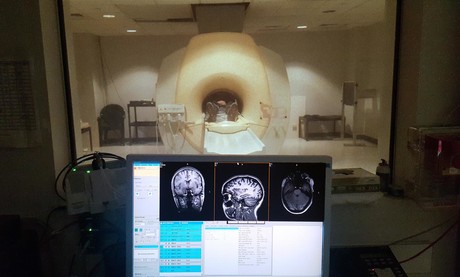Brain 'rewires' to heighten senses in the blind

If you ever speak to a blind person, chances are they’ll tell you that the rest of their senses more than make up for their lack of vision. It turns out this is quite literally the case, with US scientists discovering that the brains of those who are born blind make new connections in the absence of visual information, resulting in enhanced, compensatory abilities elsewhere.
The news was revealed by a research team led by Massachusetts Eye and Ear, a teaching hospital at Harvard Medical School, who used MRI multimodal brain imaging techniques (specifically, diffusion-based and resting state imaging) in a group of 12 subjects with early blindness (those born with or who have acquired profound blindness prior to the age of three) and 16 normally sighted subjects (all subjects were of the same age range). Their results were published in the journal PLOS ONE.
On the scans of those with early blindness, the team observed structural and functional connectivity changes, including evidence of enhanced connections, sending information back and forth between areas of the brain that they did not observe in the normally sighted group. These connections suggest that the brain ‘rewires’ itself in the absence of visual information to boost senses such as hearing, smell and touch, which is possible through the process of neuroplasticity — the ability of our brains to naturally adapt to our experiences.
“Our results demonstrate that the structural and functional neuroplastic brain changes occurring as a result of early ocular blindness may be more widespread than initially thought,” said lead author Corinna M Bauer. “We observed significant changes not only in the occipital cortex (where vision is processed), but also areas implicated in memory, language processing and sensory motor functions.”
“Even in the case of being profoundly blind, the brain rewires itself in a manner to use the information at its disposal so that it can interact with the environment in a more effective manner,” added senior author Lotfi Merabet.
The researchers hope that increased understanding of these connections will lead to more effective rehabilitation efforts that will enable blind individuals to better compensate for the absence of visual information. Merabet noted, “If the brain can rewire itself — perhaps through training and enhancing the use of other modalities like hearing, and touch and language tasks such as braille reading — there is tremendous potential for the brain to adapt.”
Stem cell experiments conducted in space
Scientists are one step closer to manufacturing stem cells in space — which could speed up...
Plug-and-play test evaluates T cell immunotherapy effectiveness
The plug-and-play test enables real-time monitoring of T cells that have been engineered to fight...
Common heart medicine may be causing depression
Beta blockers are unlikely to be needed for heart attack patients who have a normal pumping...




